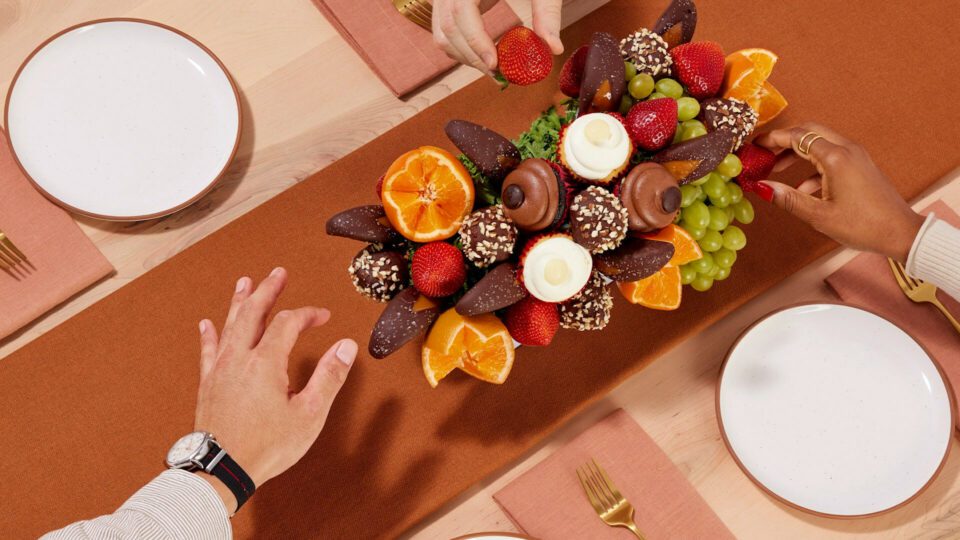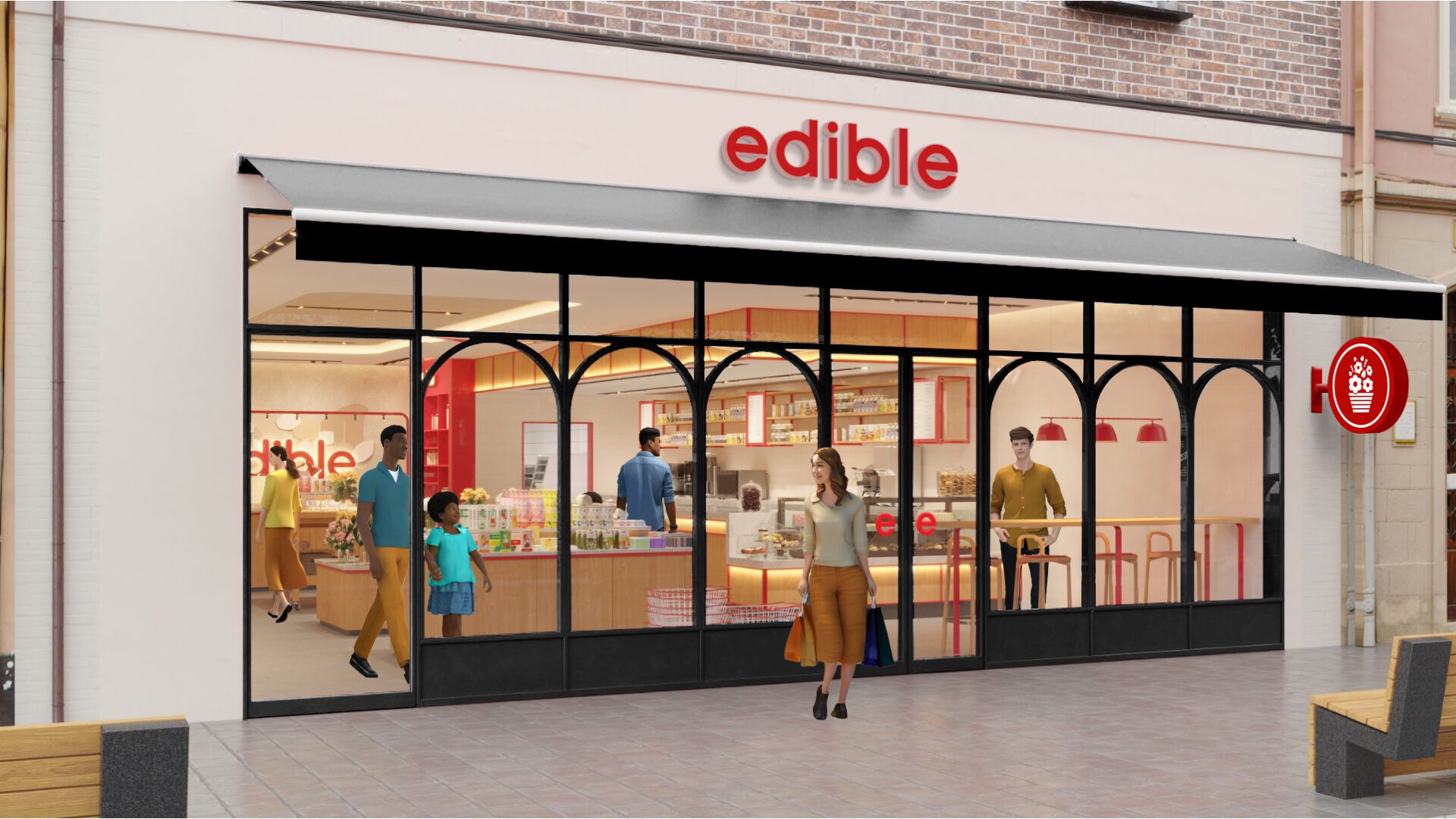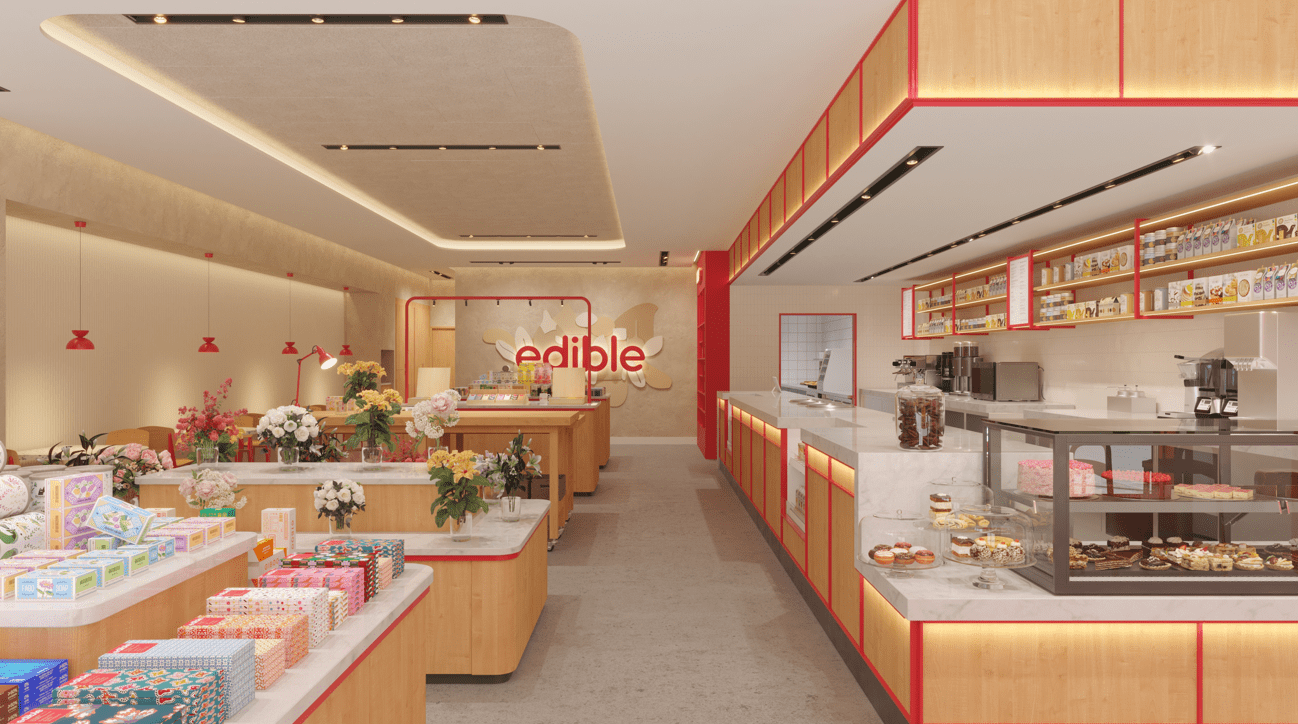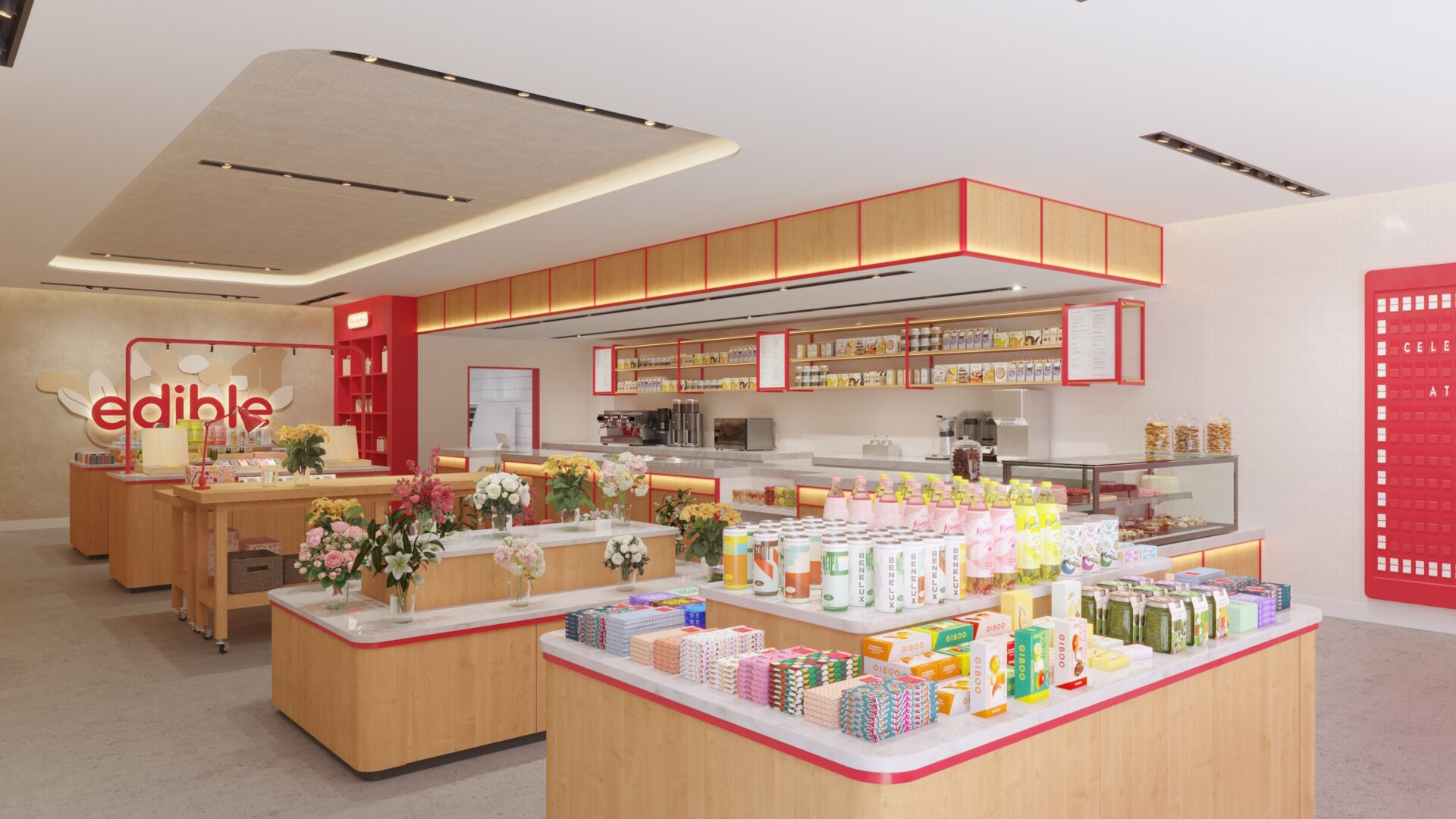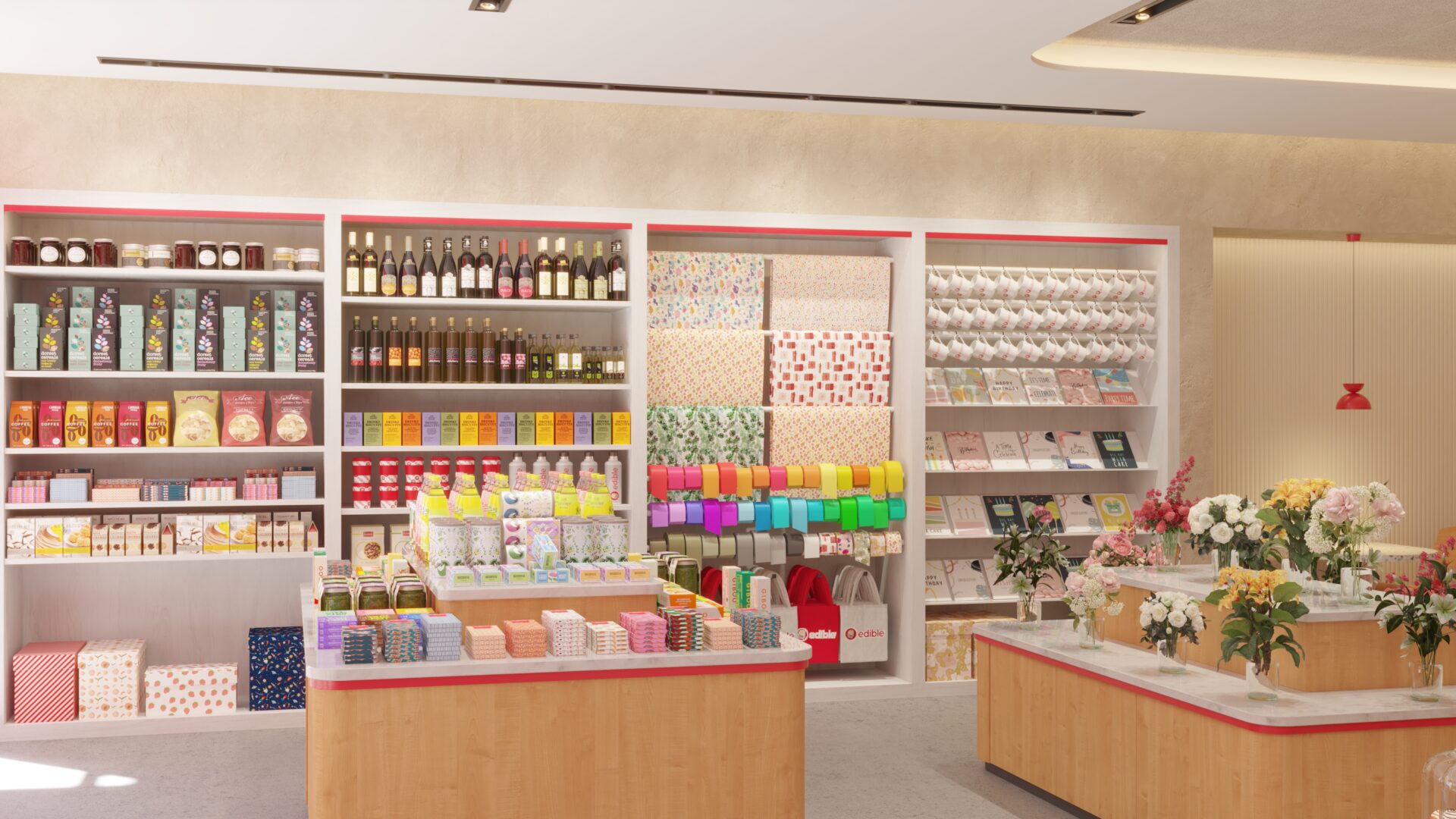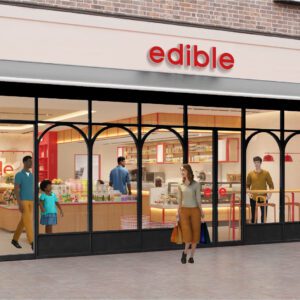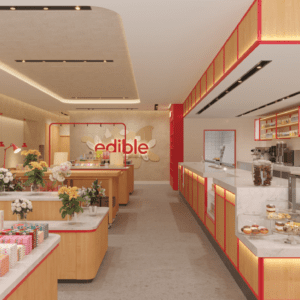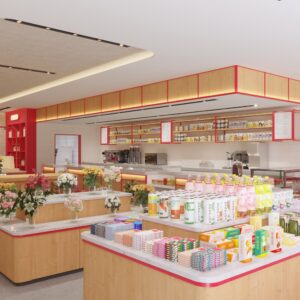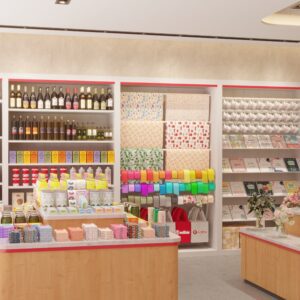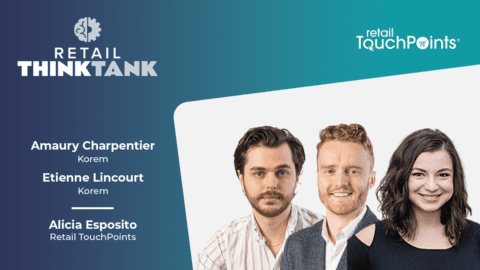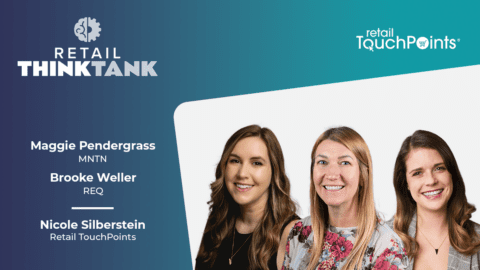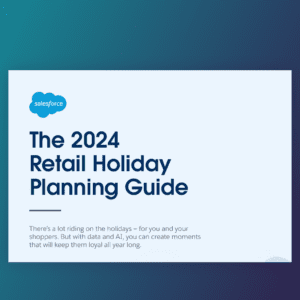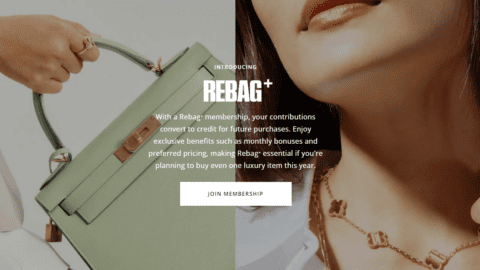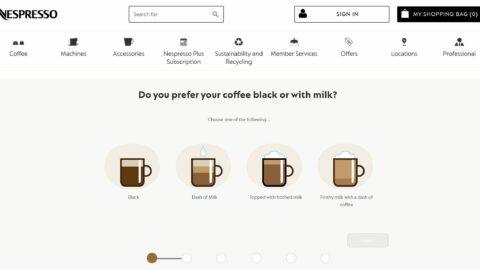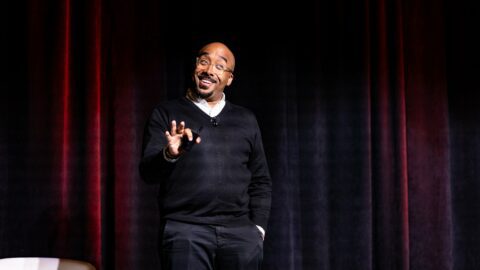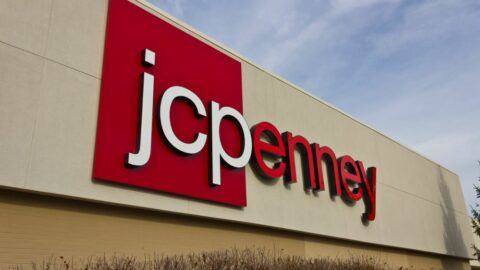Twenty-five years ago, Tariq Farid saw some fruit displayed in a unique way at an event. He turned the idea into a business — and Edible Arrangements into a household name. But his daughter, Somia Farid Silber, who’s now the company’s President, isn’t coasting on the company’s past success — she’s too busy thinking about the next 25 years.

Farid Silber was six when Edible Arrangements was founded, and the company is so engrained in her personal history that she refers to it as her seventh sibling (she has six younger siblings of the human kind). Her relatively brief time as President — she took on the role in January 2023 — has been eventful, with the rollout of a new marketing approach, multiple product expansions and a rebrand in which the company dropped the word “Arrangements” from its name, as well as a new store concept in the works.
Farid Silber sat down with Retail TouchPoints to share details of Edible’s new retail plans (hint: think “Eataly but smaller”) and how she plans to propel her father’s vision into a “billion-dollar company.”
Retail TouchPoints: How do the company’s origins relate to you and your family?
Advertisement
Somia Farid Silber: In our family fruit is dessert and food is part of the culture. When I was young we would visit family in Pakistan, and we would always stop by a market and grab fruit, whatever was in season, to take as a gift. So [in our family] fruit always has been a gift, and at one point my dad just thought, there’s a market for this.
And that’s exactly what happened. [When Edible Arrangements launched] people saw it and thought it was really cool. That’s actually how we started franchising. We had a customer walk into our first store in East Haven, Conn. He said he’d gotten one of [our arrangements delivered] at home, loved it, and asked to open a franchise. Now, 25 years later, we’re at almost 1,000 stores.
RTP: How has your role in the company evolved over the years?
Farid Silber: I was six years old when the first Edible store opened, so I’ve been in the store since I was a kid: at the back of the house making arrangements, dipping strawberries, wrapping arrangements when I was nine or 10, then taking orders over the phone when I was 12 or 13. I would go on the road with my dad to visit stores and help open new ones, so I learned a lot at a really young age about customer experience and service.
When I started out [formally at the company] in 2016, I was on the tech side; then I moved into operations, then back to tech where I ran the tech division. VP of Ecommerce was my first role that was more front-end, consumer-facing, and when I jumped into that role in 2019, we were in a pretty severe decline in the ecommerce channel. We run tech as a separate business unit now, so I was able to come in, build a team and get us back to growth right before the pandemic hit. [As President], I’ve started to get more into the franchising side, focusing on learning that area of the brand and how I can help implement more process and structure there.
RTP: Why did you separate your store and tech operations?
Farid Silber: We made that change back in 2019 when I took over the ecommerce team. Most consumers look at Edible as a direct-to-consumer ecommerce brand; they don’t really know the franchise side. This way the ecommerce team focuses on revenue management, generating orders, bringing volume to our stores, and our store side is more fulfillment-based.
[Our stores are] are 100% franchise, and our franchise business is really two businesses — they have a front of house, which is the retail business, and they have a back-of-house business, which is fulfillment for all of those ecommerce orders.
Having separate teams has been helpful to make sure each has their own strategic goals and objectives that are focused on growth for that channel. We meet regularly, multiple times a week, to make sure there’s synergy across the two teams, but in the end, they have very different goals when it comes to sales targets and other KPIs. It’s worked really well for us over the last few years.
RTP: Rebranding is always a bit risky for a well-known brand. Why did you feel the risk was worth it?
Farid Silber: It’s our 25th anniversary this year and I think it’s really important to recognize how consumer behavior has evolved over the years. At this point Edible Arrangements is a legacy brand, most people know who we are, but at the same time our frequency is low — customers only shop with us 1.5 times a year.
So dropping the word “arrangement” was really to showcase the wider offering that we have, and to help customers understand that they can interact with Edible outside of just those big ticket occasions like birthdays, anniversaries and holidays. The ultimate goal is to increase frequency and help customers realize that they can use Edible throughout their daily life.
We have same-day delivery, we have one-hour delivery, you can schedule your delivery in advance, you can come into a store and pick it up — there are multiple ways to interact with the brand. Also, it’s not just for gifting. There’s also a whole hosting and gathering element, for example, dessert for a party. There are so many different ways to interact with the brand, and that’s what we’re hoping to convey by going to just Edible.
Our tagline [for the rebrand] is “Fruit was just the beginning,” because we’ve also introduced new products, including flowers and a whole bake shop line [of baked goods]. Both are growing at an amazing rate year-over-year. So it’s not just dipped fruit and fresh fruit anymore, there’s so much more that’s been added to the offering, which is why it made even more sense to drop the word “arrangements.”
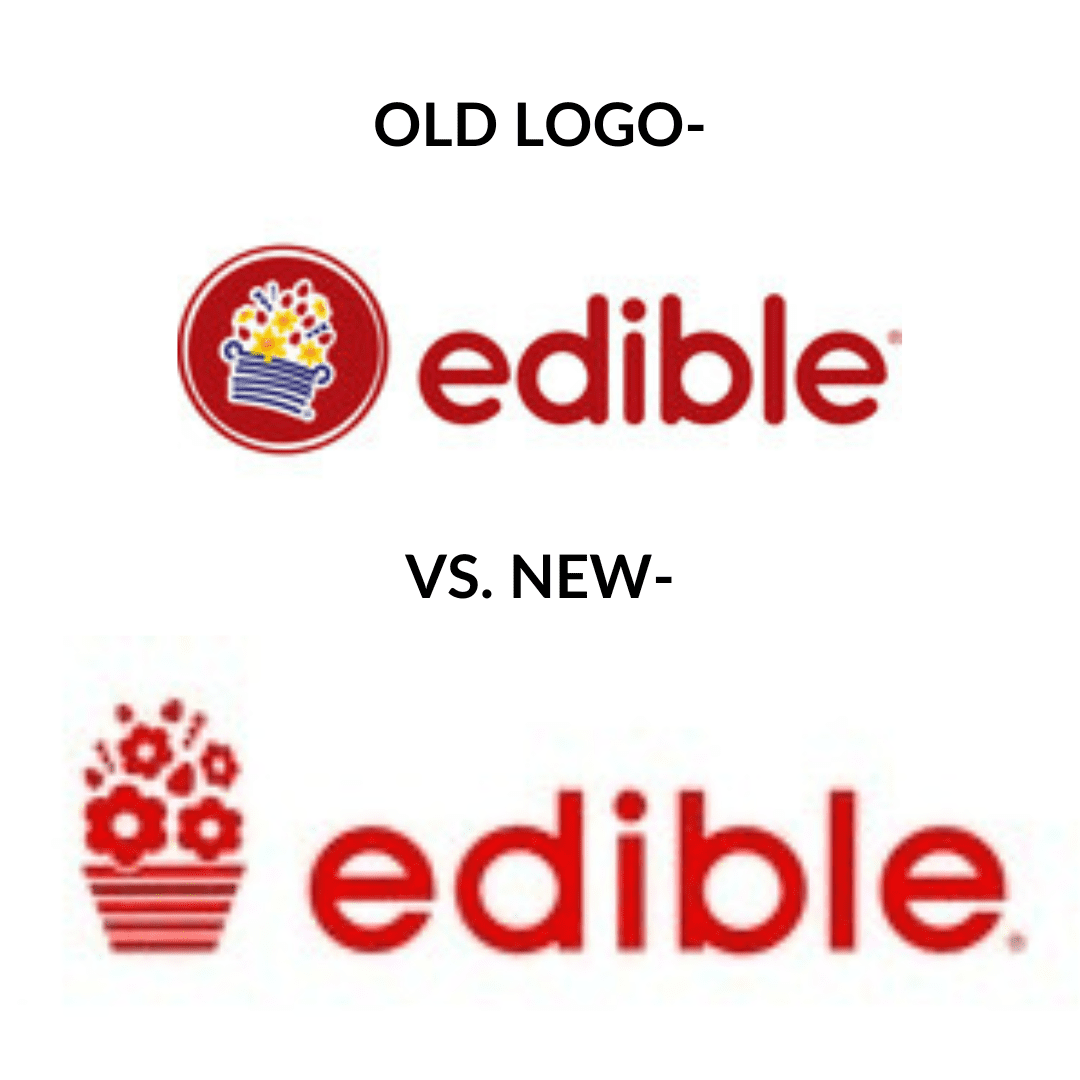
Another one of the big drivers of the rebrand was having a look and feel and identity that was more digitally forward. We went through a whole visual identity system refresh, with a new logo and a new brand campaign, “There’s an Edible for That,” that launched at the same time. It’s a really nice, lighthearted way of helping customers understand that you can use Edible for any life moment. And we went from a logo with five colors to a logo with one color. Little things like that, that the end user may not think about, are so important to bring the brand into the digital era.
Introducing new price points also has been a game changer when it comes to introducing the brand to new audiences. So it’s so much more than just dropping the word “arrangements,” and it was a really good time to do it as we look at where we want to be in the next 25 years.
RTP: With the rise of legal marijuana do you worry people will now mix the brand up with “edibles” in the other sense of the word?
Farid Silber: We do. In fact, it happens quite a bit in our stores, especially in the states where cannabis is legal. Stay tuned; it’s definitely a category we’re looking at and keeping an eye on, more from a health and wellness angle, just to see if there’s any opportunity for us to play there as we start to see more widespread legalization over time.
RTP: How is this new brand identity being translated into the new store prototype that you’re rolling out?
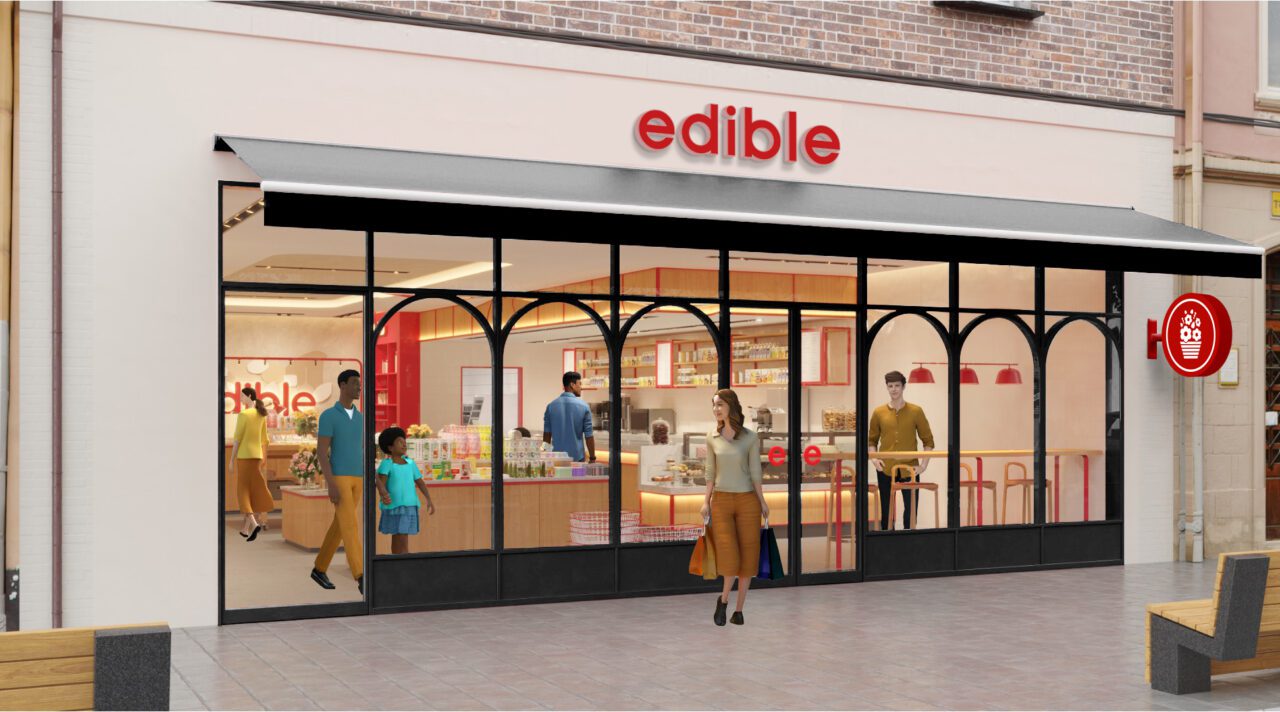
Farid Silber: Today, our stores really focus on the edible arrangements, and they’re not [necessarily placed] in really strong shopping centers. The new retail store design is about turning our stores into little marketplaces and placing them in more prominent areas. It’s about widening the offering outside of just arrangements, into coffees and teas and other ready-to-drink beverages.
Ultimately, we’re hoping this is a place where you’re coming in not just for a gift but also for a treat or an after-school snack. Like Eataly on a smaller scale. You can shop different shelf-stable food items; you can come in and grab a coffee; you can get a pastry in the morning or a smoothie in the afternoon; and you can also get a gift.
We’ll have one in Atlanta, in Buckhead, that we’re finalizing now to open later this year. Our original headquarters are in Connecticut, and we’ve got a really nice location in North Haven where we’re looking at opening one as well. And then we’ve got a few others in the pipeline. We’ll probably see the first one pop up sometime in June or July.
RTP: What has the franchisee reaction been to this?
Farid Silber: We do have some existing franchisees who are asking for it, eager for it, and who we’re working with to see if it works in their market. We’re being very selective about [which franchisees we do this with] because it’s a different model. It requires the franchisee to be more front-facing and be really integrated into their community and their market.
But we’re not converting all of our existing stores into this “next look.” It’s almost like a net-new brand and it’s a completely new layout. So [while] we might have some existing franchisees who convert to this new look and feel, the strategy we’re taking is more location-based. We’re identifying locations where we want these stores to exist, and then finding the right franchisee for them.
RTP: Where do you see Edible going in the next 25 years?
Farid Silber: I think we have the potential to be a billion-dollar brand. There are so many ways for us to continue to show customers how they can interact with the brand, and there are so many product opportunities for us. When we launched Bake Shop, we didn’t realize what a big opportunity it was until we started to see what it was doing for us and how it was helping our franchisees. So continuing to look at new product offerings, strategic partnerships and growing our third-party channels [is how we’ll get there]. It’s really about going where the consumer is.
For example, we’ve seen a lot of success on channels like DoorDash and Uber Eats. That’s a very different customer. They’re shopping at a much lower average ticket — our top item [in those channels] is less than $10. It’s more about that indulgent after-dinner treat.
We’ve got a billion-dollar vision and we do talk internally about the opportunities for an IPO. Especially for my dad, being an immigrant, that’s the ultimate American dream if we were ever able to do it.




